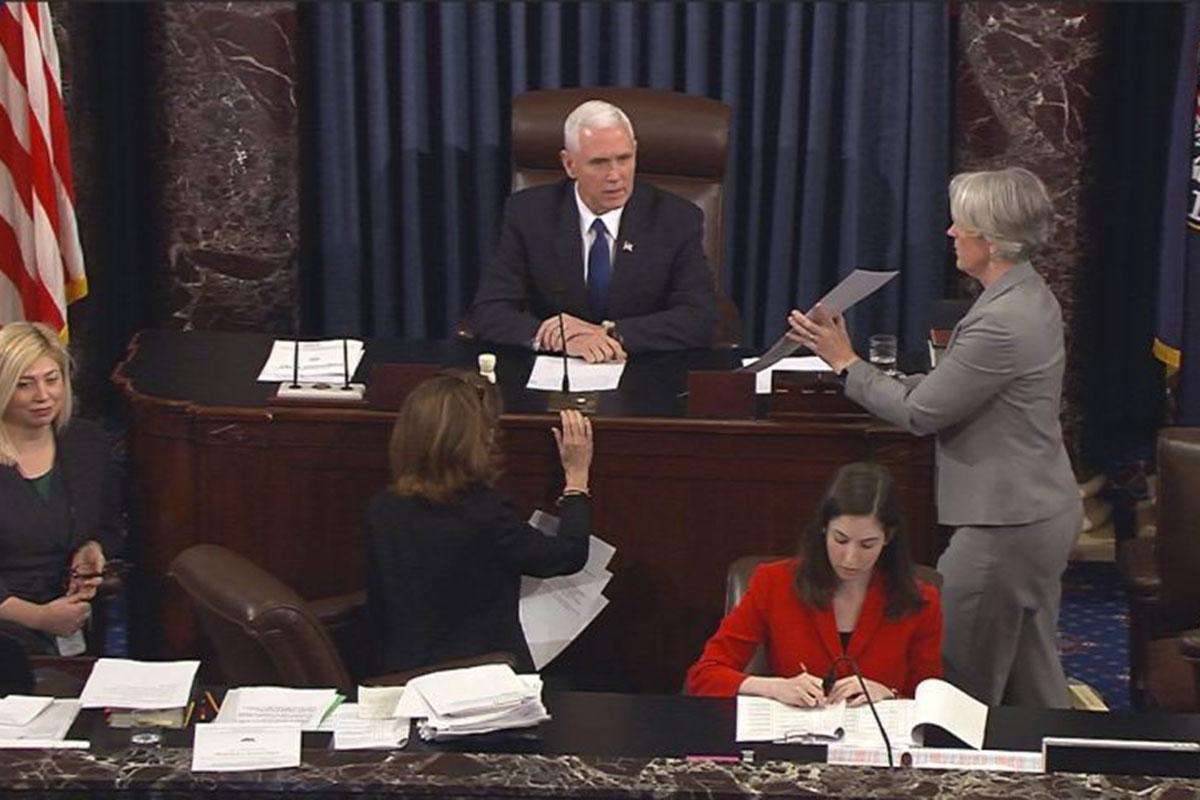The Senate's confirmation of Betsy DeVos may be historic – but it’s also a sign of how far the Capitol's warfare has sunk
Normally, when a nomination has become controversial, things aren’t allowed to go this far – candidates usually pull out of their own volition


Your support helps us to tell the story
From reproductive rights to climate change to Big Tech, The Independent is on the ground when the story is developing. Whether it's investigating the financials of Elon Musk's pro-Trump PAC or producing our latest documentary, 'The A Word', which shines a light on the American women fighting for reproductive rights, we know how important it is to parse out the facts from the messaging.
At such a critical moment in US history, we need reporters on the ground. Your donation allows us to keep sending journalists to speak to both sides of the story.
The Independent is trusted by Americans across the entire political spectrum. And unlike many other quality news outlets, we choose not to lock Americans out of our reporting and analysis with paywalls. We believe quality journalism should be available to everyone, paid for by those who can afford it.
Your support makes all the difference.Betsy DeVos' confirmation as Education Secretary thanks to the tie-breaking Senate vote of the Vice President is not just an unprecedented event in US history. It is further proof that once routine confirmation proceedings have been sucked into the partisan warfare on Capitol Hill – and a harbinger of what may come next.
Once upon a time (or more exactly until midway into the Obama administration) confirmations of Cabinet nominees were, with the rarest of exceptions, a given. Often choices went through without even a formal voice vote, and even in contentious times the margins of approval were wide.
In 2005, for instance, when disapproval of the Iraq war was growing fast, Condoleeeza Rice, a prime policy maker in that war, was approved as Secretary of State by 85-15. Contrast that with the 56-43 margin by which Rex Tillerson, Donald Trump’s choice for the same job, was confirmed last week.
Only twice since World War II has a nominee been actually rejected by the full Senate: Lewis Strauss, who was turned down as Dwight Eisenhower’s Commerce Secretary in 1959; and John Tower, defeated by 53 votes to 47 as George HW Bush’s first Pentagon choice in 1989 (the job eventually went to Dick Cheney).
Normally, when a nomination has become controversial, things aren’t allowed to go that far. In the past 30 years, more than a dozen Cabinet nominees have failed to be confirmed – but with the exception of Tower, because they’ve pulled out of their own volition, usually because of failure to pay some past taxes (either on their own account, for a household employee, or for some other usually pretty minor financial irregularity).
Bill Clinton lost a couple of Attorney General nominees (Zoe Baird and Kimba Woods) that way, because it emerged they had employed illegal immigrants as nannies for their children. Later, another to fall by the wayside was Tom Daschle, who took himself out of consideration as Barack Obama’s first nominee to head the Department of Health and Human Services in 2009, because of various unpaid back taxes. Daschle had the votes, but declared he didn’t want to be a “distraction” to the new president’s agenda.
No such niceties obtain these days. Mick Mulvaney, President Trump’s pick for White House Budget Director, failed to pay $15,000 in payroll taxes for a household employee, it has emerged. But there’s been scant talk of him stepping down.
Similarly Tom Price, Trump’s hotly contested nominee for the HHS job, is under fire from Democrats for alleged insider trading, over share dealings in medical companies he made while a member of Congress. In more genteel times, he too might have bowed out as a “distraction.” But in 2017, not a chance.
In today’s take-no-prisoners mood on Capitol Hill, Republicans will doubtless hail the DeVos confirmation as a famous victory – and none of Trump’s other nominees is likely to have such a close call, when they face a full Senate vote. But the warfare will continue, fiercer than ever.
Join our commenting forum
Join thought-provoking conversations, follow other Independent readers and see their replies
Comments